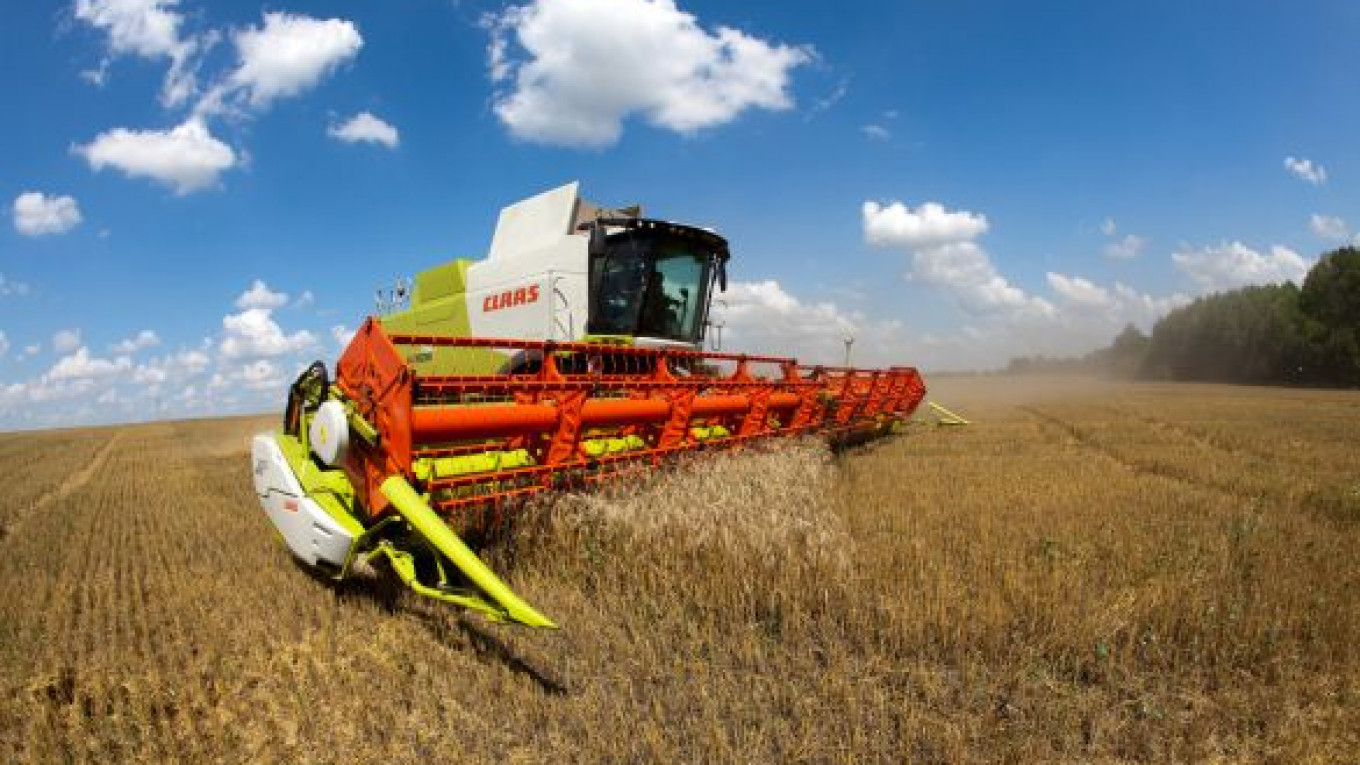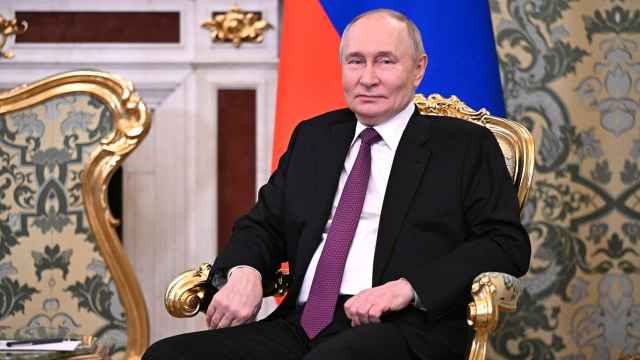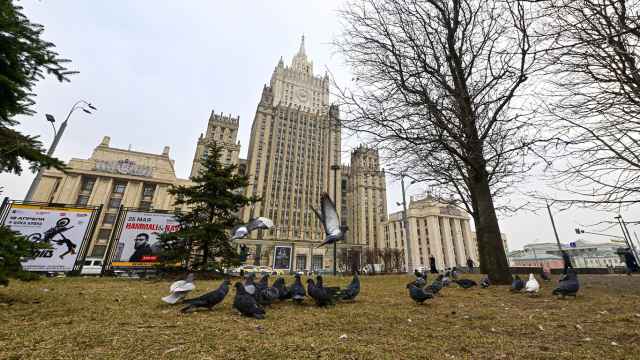The Cabinet approved a new long-term plan to support farming, changing some approaches that could raise questions among WTO members.
Federal agricultural subsidies and spending are rising very moderately despite fears that Russia's entry into the global trade group in the next few weeks will challenge the sector thanks to a surge in foreign competition.
As the support program starts next year, the government will terminate the long-term government-facilitated discounts farmers have gotten from suppliers of gasoline and fertilizers.
"That could bring us accusations of dumping ... from the other WTO member countries" when it comes to sales of farm products, Deputy Prime Minister Arkady Dvorkovich said. "It's best to do away with these nonmarket mechanisms."
Russia is one of the world's largest grain exporters.
Instead of engineering favorable price agreements on some supplies for farmers, the government will introduce a subsidy seeking to ensure that they earn at least a 10 percent profit on every hectare of farmland, Dvorkovich said after the Cabinet session.
"We believe it's a quite achievable target," he said.
The profitability rate is now under 9 percent, he said.
The subsidy will amount to about 30 billion rubles ($923 million) per year, Dvorkovich said.
In the first half of this year, farmers saved 12 billion rubles through the 30 percent discount on some of their fuel, and they are set to save a comparable amount in the second half.
Fertilizer discounts from London-listed Uralkali alone, which produces a fifth of the world's potash, amounted to $117 million last year, about two-thirds of its profit-tax payment.
The total federal funding for the farming program will rise by a mere 2 billion rubles, to 158 billion rubles next year, Dvorkovich said.
Another new measure will be a subsidy for every liter of milk that farmers actually sell. This will serve as an incentive to produce higher quality milk, Agriculture Minister Nikolai Fyodorov said.
Only 30 percent of current milk output complies with European Union standards, he said.
The spending on milk subsidies will climb from 10 billion rubles next year to 12.5 billion rubles toward the end of the program.
The eight-year program will draw 1.5 trillion rubles from the federal budget. Another 770 billion rubles will come from regional coffers.
The federal funding is much less than the program, which was largely developed under the previous agriculture minister, Yelena Skrynnik, initially sought.
Apparently fazed by the setback, the new minister, Fyodorov, took a jab at austerity-loving Finance Minister Anton Siluanov.
He placed the riposte into a phrase that thanked Prime Minister Dmitry Medvedev for his "understanding" of the sector.
"I can say that this circumstance not only supports but also inspires farmers," Fyodorov said. "And through inspired labor, the government recovers its expenditures many times over, filling the budget and, I think, the table for Anton … and his family members."
Recapping the current support program, which ends this year, Fyodorov said it has helped attract private investment to agriculture.
In a recent example, German firm Evonik last week decided to go ahead with a joint project in the Rostov region to produce an additive for animal feed.
In conjunction with Russky Agropromyshlenny Trest, owned by Vadim Varshavsky, the firm will build a 6.7 billion ruble ($200 million) plant that aims to start making the additive from local grain in 2014.
It would be the only plant of its kind in Russia, the regional governor has said. Farms now import the additive, a source of L-lysine.
The Rostov region usually exports more than half of the 7 million tons of grain it harvests annually.
Evonik, the minority partner in the venture, described the abundance of crops as an advantage.
"For one thing, it allows us to safeguard raw material supplies," Walter Pfefferle, an Evonik top executive, said in a statement.
Georgian Foreign Minister Grigol Vashadze said he hopes that Russia's accession to the WTO will rule out bans on imports of Georgian products to Russia.
A Message from The Moscow Times:
Dear readers,
We are facing unprecedented challenges. Russia's Prosecutor General's Office has designated The Moscow Times as an "undesirable" organization, criminalizing our work and putting our staff at risk of prosecution. This follows our earlier unjust labeling as a "foreign agent."
These actions are direct attempts to silence independent journalism in Russia. The authorities claim our work "discredits the decisions of the Russian leadership." We see things differently: we strive to provide accurate, unbiased reporting on Russia.
We, the journalists of The Moscow Times, refuse to be silenced. But to continue our work, we need your help.
Your support, no matter how small, makes a world of difference. If you can, please support us monthly starting from just $2. It's quick to set up, and every contribution makes a significant impact.
By supporting The Moscow Times, you're defending open, independent journalism in the face of repression. Thank you for standing with us.
Remind me later.






